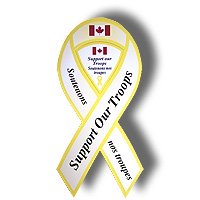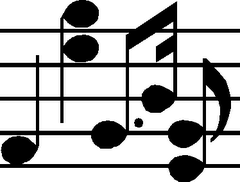Joint Task Force Afghanistan and other soldiers from the ISAF community pay tribute to fallen soldiers during a ramp ceremony held at the Kandahar Air Field. Soldiers slowly carry their fallen comrades, Sergeant Christos Karigiannis, Corporal Stephen Frederick Bouzane, and Private Joel Vincent Wiebe, to the waiting C130 Hercules transport for the journey back to Canada All three soldiers were members of Charlie Company, 3rd Battalion Princess Patricia’s Canadian Light Infantry (3 PPCLI) from CFB Edmonton and at approximately 7:49 am Kandahar time 20 June 2007 the three Canadian soldiers were killed when the vehicle they were traveling in struck an improvised explosive device on the main road, approximately 6 km west of Forward Operating Base Sperwan-Gar. The incident occurred while the soldiers were conducting resupply operations between checkpoints. 3 PPCLI members is part of the 2nd Battalion Royal Canadian Regiment (2 RCR) Battle Group of the Joint Task Force Afghanistan (JTF-Afg).
-
Bless their families and friends ~ here and in Afghanistan.
-
Dignity and Tragedy Define Ramp Ceremony
Private Joel Wiebe got a dignified and glorified send-off under a dazzling crescent moon yesterday evening, but a military ramp ceremony was hardly the sort of celebration he deserved on what would have been his 23rd birthday.
He was accompanied at the back of a Hercules departing for Trenton, Ont., by the bodies of quiet Newfoundlander Corporal Stephen Bouzane and fun-loving Sergeant Chris Karigiannis.
The ramp ceremony for those killed by a bomb explosion on an off-road trail on Wednesday has become a dreaded but essential part of the military culture, having ushered 60 bodies aboard Canada-bound Hercules for the trip home in tragically unexpected style.
Yet even the send-off after three deaths this week, with more than 1,200 soldiers bearing silent witness to their sacrifice, probably won't rate the sort of national news attention of a few years ago. The novelty has clearly worn off in Canada, amid the rising volume of ceremonies.
But behind the scenes of grief that spill out across the airport tarmac is a precise military operation that occurs within minutes of casualties being inflicted.
When the phone rang in Sgt. Maj. Jim Young's office on Wednesday morning to alert him to three VSAs -- rather cold military jargon for "vital signs absent" -- it set in motion a strict protocol, complete with checklists, tape measures, scripts and maps for correct military positions.
The U.S. mortuary was alerted to the spectre of incoming bodies, identification teams were called to confirm the names of the deceased, a pastor was summoned and troops from the victims' unit were recalled to base.
"This is not a funeral service. Our priority is to get the individuals out of Kandahar with as much dignity and respect as possible," Sgt. Maj. Young said in an interview.
And that is exactly what he delivered yesterday in flawless stopwatch precision.
Hours earlier, it had been a different story, and there were hints of trouble in the air. Inbound troops from the victims' company called to say they were running late, threatening to run out of time for a shower, haircut and the rehearsal.
Then Sgt. Maj. Young's truck battery died as he was rushing to chalk the tarmac outline for the military lineup. Finally, a British Hercules was intruding on ramp ceremony space and running late for its departure. It was finally ordered to move and load in another location.
Meanwhile, at his office, Padre Malcolm Berry was polishing the address he would deliver, keeping in mind the religious wishes of the victims. He was having a different sort of day after learning he'd driven the wrong vehicle to work, his key somehow starting someone else's car. For a while there, he stood jokingly accused of being a car thief.
Capt. Randy Adams had rushed back from reconstruction duties in Kandahar City to serve as ceremonial bagpiper for the 17th time in two years, after brass discovered the other regulars were on leave.
You wonder how he can still want to play an instrument linked mostly to a pre-funeral ritual. "We're always called upon to do things we don't enjoy. I look at this as the one way I can help out in the process."
Two hours before the event, there was a military visitation for friends and comrades. If the ramp ceremony is a public display of goosebumps and wet eyes, the visitation is all grief and tears in private.
The compound outside the mortuary was draped in white, the better to mask the surrounding piles of containers and trailers.
Soldiers huddled in small groups or slumped beside armoured vehicles after paying their respects at the three aluminum "transfer cases" draped with the flag, each with the soldier's picture on top. It was crushing sadness personified.
The real event started on schedule to the sound of armoured carriers bearing the bodies rumbling toward the airport.
The aluminum "transfer cases" were unloaded in absolute silence. Then the pastor preached (nicely and briefly), the piper piped (well), the pallbearers marched while trying to keep their emotions in check and it was over.
Less than half an hour later, the Hercules left the mourning behind and was winging its way from the base.
Yet another farewell salute was over, completed with gut-wrenching emotion and flawless execution.
But perhaps the saddest part of all is that ramp ceremonies have been perfected through far too much practice. It would be delusional but nice to think this finely tuned military expertise will no longer be required.
Repatriation at CFB Trenton
Fallen soldiers Cpl Stephen Frederick Bouzane of Newfoundland; Pte. Joel Vincent Wiebe of Alberta and Sgt. Christos Karigiannis of Quebec, all of the Princess Patricia's Canadian Light Infantry are scheduled to arrive at CFB Trenton Sunday evening, 24 June, at 5:30 p.m. CFB Trenton personnel have announced. They are coming home.
Throughout Northumberland County, emergency services personnel and civilians will be gathering on bridges spanning the highway to honour the fallen military personnel and their families.






























No comments:
Post a Comment